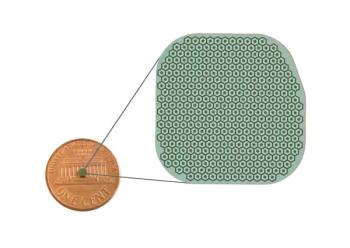
The Vision Council submits formal comments to US Department of Commerce on national security investigations
The Vision Council argued that broad product definitions in the investigations could lead to include optical goods in new tariffs moving forward.
The Vision Council has announced its submission of formal comments to the US Department of Commerce in response to ongoing national security investigations that have the potential to validate new tariffs on products often used to manufacture optical goods. The 2 Section 232 investigations that The Vision Council submitted comments on are concerning personal protective equipment (PPE), medical consumables, and medical equipment (
“In its comments, The Vision Council argued that imposing additional tariffs on these essential optical products and machinery would directly harm public health by raising costs for patients and providers,” the release stated. “The submissions urge the Department to exclude optical products and related manufacturing equipment from any new tariff actions and to recognize that these goods support, rather than threaten, U.S. health and economic security.”
In its comment submissions, The Vision Council provided lists of Harmonized Tariff Schedule codes that identified optical devices, diagnostic instruments, and eyewear manufacturing machinery that the organization argues should be exempt from Section 232 measures.1 Currently, the investigations cited PPEin health care settings including but not limited to “surgical masks, N95 respirators, gloves, gowns, and related medical parts and components,” medical consumables as the “single-use or short-term-use items used for patient diagnosis, treatment, and prevention of conditions,” medical equipment with a broad definition of “durable equipment, tools, and machines used in health care to support patient care,”2 and robotics and industrial machines as “robots and programmable, computer, controlled mechanical systems,” among other devices.3
“Affordable access to corrective eyewear is a public health necessity,” said Ashley Mills, CEO of The Vision Council, in the release. “Additional duties on optical devices or equipment will make it harder for Americans to access the care they need.”
The organization reiterated in its comments that optical medical devices are among some of the most widely used medical devices in the US, with around 61% of citizens wearing prescription eyeglasses and over 81 million pairs of lenses dispensed every year. The Vision Council argues that additional tariffs on optical devices would raise prices for the entire optical supply chain, which would then limit access of vision care for the country’s most vulnerable populations.1
The Vision Council also cited the negative economic impact that has already been recorded of current trade measures, including the Section 301 tariffs and duties made possible by the International Emergency Economic Powers Act. These tariffs have already threatened optical companies with higher costs, reduced margins, and delayed expansion, according to the release. The organization also emphasized that the optical industry’s supply chains “pose no threat to US national security and are primarily focused on consumer health and vision care,” and includes business with reliable trade partners including Italy, Germany, Japan, and Mexico.1
The formal submissions are coupled by The Vision Council’s Government and Regulatory Affairs team efforts to work with members of Congress and federal agencies in Washington DC for the advocating of tariff relief.1
“Our mission is to ensure policymakers understand that optical products are health tools, not security threats,” said Omar Elkhatib, senior manager of Government Relations at The Vision Council, at the release. “Tariff relief is essential to maintaining affordable, high-quality vision care for millions of Americans.”
References:
The Vision Council advocates against expanded tariffs on optical products and manufacturing equipment. News release. The Vision Council. October 29, 2025. Accessed November 4, 2025.
https://thevisioncouncil.org/blog/vision-council-advocates-against-expanded-tariffs-optical-products-and-manufacturing-equipment Bureau of Industry and Security, regulations.gov. 0694-XC134 Published Notice Section 232 Medical PPE and Equipment. September 26, 2025. Accessed November 4, 2025.
https://www.regulations.gov/document/BIS-2025-0258-0001 Bureau of Industry and Security, regulations.gov. 0694-XC138 Published Notice Section 232 Robotics. September 26, 2025. Accessed November 4, 2025.
https://www.regulations.gov/document/BIS-2025-0257-0001
Newsletter
Want more insights like this? Subscribe to Optometry Times and get clinical pearls and practice tips delivered straight to your inbox.





























